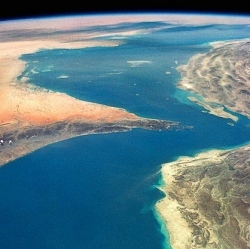
Inmarsat, the UK’s biggest space company, has boosted its global broadband network with the launch of a fourth high-frequency satellite. The I-5 F4, which will service the voice, video and data needs of remote and on-the-move customers, was taken into orbit by a SpaceX Falcon-9 rocket.
It is the first time the London company has used the American launch provider. The rocket and its payload lifted away from Florida’s Kennedy Space Center at 19:21 local time (00:21 BST, Tuesday).
The I-5 F4 was ejected from the upper-stage of the Falcon some 32 minutes later. At six tonnes, the satellite was on the limit of the rocket’s performance, meaning SpaceX had no spare propellant to follow its usual practice of landing the vehicle’s first-stage back on Earth after the mission.
The booster was allowed instead to fall down uncontrolled over the Atlantic. Inmarsat has not made it clear precisely where or how it will use the new satellite.
The firm already has three Ka-band spacecraft delivering its Global Xpress broadband service to customers worldwide. These clients include ships, oil and gas platforms, armed forces and the media – users who need telecommunications away from a fixed line.
CEO Rupert Pearce told BBC News that the new "bird" would act in the first instance as a quick-response spare to fill in behind the primary satellites, should one of them unexpectedly experience a failure.
But it was inevitable, he said, that with ever-increasing demand for capacity, the I-5 F4 would ultimately be deployed to exploit new market opportunities.
"You could say it’s something of a ‘Swiss Army Knife’ for us, and that’s a nice position to be in," he added.
"I expect we’ll become clear on the early business applications of the satellite around the end of the summer."
Inmarsat owns a number of orbital slots in the geostationary arc some 36,000km above the equator and so is under no pressure to say now exactly where the satellite will be stationed.
